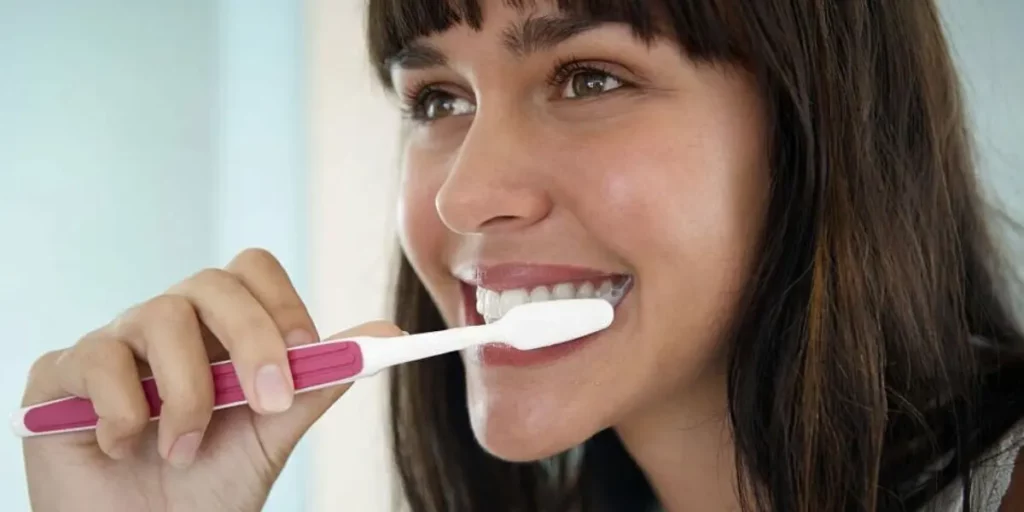Paying a visit to the dentist is kind of hard for some individuals, especially if they are skeptical about the process. Dental cleaning, root canal, or any dental issue requires you to sit with an open mouth for an extended period while the dentist fixes the issue. It is normal if you are having second thoughts about dental cleaning.
However, experiencing pain after dental cleaning is not normal. It can indicate gingival inflammation or dental issues if the pain does not reside. In this blog, we are going to discuss why you experience pain after dental cleaning and how to relieve it.
Cause For Discomfort After Dental Cleaning
Dental cleaning requires a cleansing process on Dentin and Enamel. The outer layers of the teeth are often yellow in color due to lifestyle choices. These layers protect your teeth’s nerve tissues and create a barrier from contaminants. Your roots are exposed too for the cleaning, which are sensitive to touch.
Now, when the dental hygienist performs dental cleaning, there can be numerous reasons for the discomfort. If you have sensitive gums and a reigning symptom of tartar and plague on the tops of your teeth. There will be pain after the dental cleaning in this scenario.
The reason is because of the pressure of scrapping the plague and tartar from your teeth. With that, it makes your teeth and gums sensitive and causes discomfort. Another reason would be the use of abrasive materials while polishing the teeth.
The materials used for the cleaning process are sterilized and approved. But it can be sensitive for your teeth to polish after all the scrapping and probing. Anesthesia is used to numb your teeth and gums during the process. With local anesthesia, the effects wear off after some time, which can also contribute to pain after the process.
Effective Ways To Relieve Pain
Coming back from the dental cleaning, you must have had a consultation with your dentist. This conversation includes the dos and don’ts for a couple of days to treat the pain and maintain your teeth.
👉 Using Toothbrush With Soft Bristles
Dental hygienists often recommend using a soft-bristled toothbrush rather than the hard bristles. With the hard bristles, you may be able to clean your teeth quicker but it affects your gum. Always use the ones which do not irritate your gums and enamel. Especially after coming back from the dental cleaning process.

👉 Honey Water To Rescue
Honey has a natural soothing property that will help your gums to heal and relieve pain. Also, the sweet-tasting drink is refreshing with warm water and beneficial to your overall health. Drink honey-infused water three times a day to treat sensitivity and pain.
👉 Eat Soft Foods
It would be unwise to snack on chips and have crispy foods after a dental cleanup. Your teeth are sensitive to touch and require soft and warm food for a couple of days. Stack up on eggs, smoothies, and rice with boiled vegetables, which are recommended to eat after dental cleaning.
👉 Use The Right Toothpaste
Often while choosing toothpaste, we focus on the cleansing properties. Instead, we should be focusing on sensitivity. Using sensitive toothpaste will help to reduce the pain in your gums and teeth. Potassium nitrate as an active ingredient in toothpaste is the ideal choice that will promote the healing process for the gums.
👉 Salt Water Solution
Rinsing your mouth with a warm salt water solution is a great way to alleviate the pain in your gums and teeth. Rock salts have anti-inflammatory properties that help to subside the swelling caused by aggressive brushing during dental cleanup. Mix 2 tablespoons of rock salt in warm water and gargle it four times a day. You can see a huge difference in the pain.
👉 Medications
If you have had previous dental problems, then your dentist will prescribe some medications to relieve the pain. These medications also help to relieve minor aches that may occur from time to time.
Conclusion
Dental Cleaning is a long and scrapping process that can induce pain. Following the dentist’s instructions is something that should be taken seriously. If you encounter any unusual pain or discomfort, then you should reach out for medical help immediately.